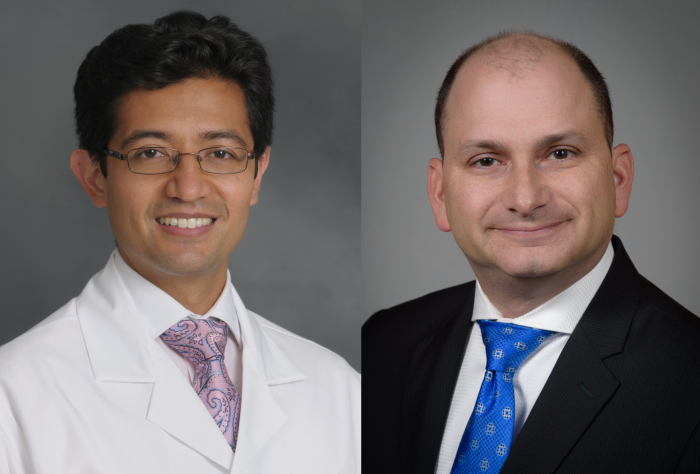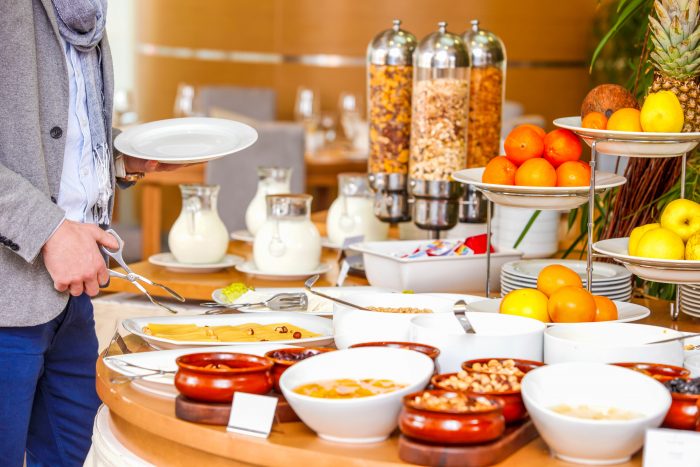No one rushes to make a reservation at a pre-colonoscopy restaurant with a cleansing and well-reviewed special of the day.
In fact, for most people, the preparation for a potentially lifesaving diagnostic procedure is somewhere between unpleasant and unpalatable.
That, however, may have changed as the U.S. Food and Drug Administration recently approved another incremental improvement in the colonoscopy preparation that could make the preparation and the procedure — which can detect early signs of cancer — less bothersome.
Manufactured by Sebela Pharmaceuticals, Suflave is a low-volume preparation that tastes like a lemon-lime sports drink. It should be available in August.
“Patients really like” Suflave, with about 80 percent finding it palatable, said Dr. Daniel Jamorabo, a gastroenterologist at Stony Brook Medicine and assistant professor of medicine in the Division of Gastroenterology and Hepatology at Stony Brook University’s Renaissance School of Medicine.
Jamorabo called it a “wonderful addition to the bowel preparations that are out there.”
Jamorabo said the ingredients in most preparations are the same: the difference in the Suflave preparation seems connected to the flavor.
The thinking in the gastrointestinal community is that “we need to find a preparation” that is more pleasant, said Dr. David Purow, chairman of Medicine-Gastroenterology at Huntington Hospital. “That will capture more people who are somewhat reluctant to have a colonoscopy.”
Colonoscopies are a “necessary screening procedure,” Purow added, and health care professionals in the field don’t want the discomfort during preparation to discourage people from getting the procedure.
Indeed, doctors have a much higher success rate with patients when they detect evidence of colon cancer early.
Getting it right
Doctors suggested that the success of preparing for a colonoscopy varies.
Jamorabo estimated that around 10% of patients may not take all the steps necessary to have the screening.
In those circumstances, these patients have to reschedule the procedure and go through drinking fluids that clear out their systems more effectively.
Gastroenterologists urged people to ask questions if they don’t understand any of the steps they need to take to prepare.
For some patients, the COVID-19 pandemic delayed their routine colonoscopy visits, as people stayed away from hospitals and medical care facilities during periods of highest viral infection.
Jamorabo added that colon cancers have started to show up in younger people.
In 2018, the American Cancer Society recommended lowering the age for screenings from 50 to 45.
“It’s showing up more” in people under 50, said Jamorabo. “It may even go lower.”
Doctors discovered stage three colon cancer in late actor Chadwick Boseman before he was 40.
“We don’t know yet” why it’s causing cancer in younger people, Jamorabo added, but “it’s not rare. It’s been going on for a couple of years. We can’t write it off as some statistical anomaly.”
Early symptoms
People can and should be on the lookout for symptoms that might indicate colon cancer.
Unintentional weight loss, such as losing 10 pounds or more in three to four months without changing diet or exercise regimen, could indicate a problem.
Blood in the stool, changes in bowel habits and ongoing constipation could also require medical attention.
More subtle signs, such as fatigue, shortness of breath or decreased appetite, could indicate that people are losing blood in their stool.
As for the overlap between COVID and colon cancer, Jamorabo believes that the ongoing inflammation from the SARS-CoV2 virus could predispose people to cancer.
“I don’t think enough time has elapsed” to know if there’s a link between the virus and colon cancer, he added.
With anxiety building over big-picture issues like global warming and an intensely divided population, people are likely increasingly worried about the state of the world.
“Most gastroenterologists are probably busier than they’ve ever been,” Purow said. “Some of that is probably due to the times in which we are living.”
Stress and anxiety can cause gastrointestinal symptoms that manifest in different ways.
Even with less concern about the pandemic, doctors are still seeing more people with alcoholic liver disease, as some turned to alcohol to relieve their ongoing anxiety.
“We’re trying to expand our network of dietitians and mental health professionals that we’re working with,” said Purow.
Information is power
An important tool in preventing colon cancer involves tracking the colon’s health through colonoscopies.
Having Suflave on the market could “lower the dread” of having a colonoscopy, Jamorabo noted. “We need to make the logistics of the preparation easier.”







